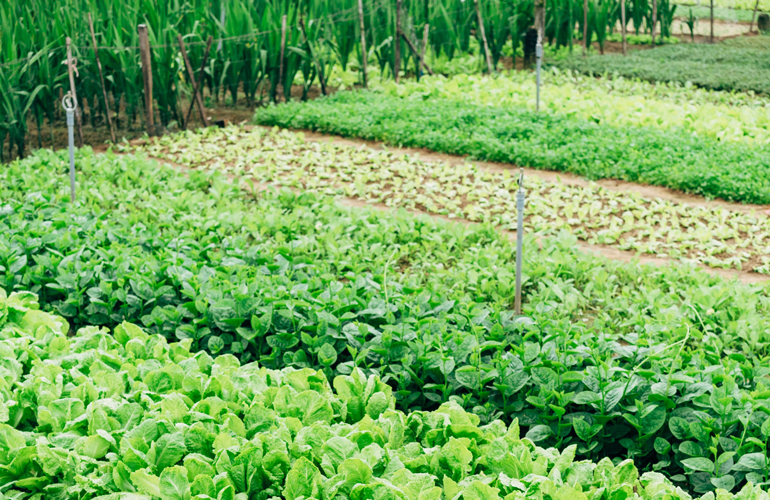In a nutshell it’s about observing and using the patterns found in nature to regenerate it. Imagine a world where our impact on the planet is magnificent – that’s permaculture.
What could it be like if humans could help make this place sing with life?
Lisa Fernandes in Inhabit
The three values: earth care, people care, fair share
Bill Mollison and David Holmgren founded permaculture in Australia in the 70s. Bill is famous for saying that if you find yourself annoyed by the amount of slugs in your garden you might think you have a slug problem, but what you actually have is a duck deficiency. I found this a great way to change my perspective on ‘problems’ and remind myself that nature doesn’t have any. It sorts it all out.
Beyond that permaculture considers fair share and community, ensuring everyone has what they need rather than a few people having more than they need. It’s summarised by:
- earth care
- people care
- fair share
Permaculture: A way for humans to consciously design systems that support ourselves – food production, energy, buildings, transportation, technology, even human relationships and financial systems – while acknowledging our roles as equal co-creative members of natural ecosystems with the ability to regenerate our environment while we’re providing for our own needs.
Jono Neiger in The permaculture promise
It can all be seen in your sandwich
If you’re eating a sandwich on your next lunch break take a minute to think about the people and practices used to grow the wheat, tomatoes, pigs or cows. All of these things have stories behind them, and they all made their own impact on the soil and the planet.
In permaculture agricultural practices consider the future of the land as well as what’s happening right now. In the documentary ‘Inhabit: a permaculture perspective’, Charles Eisenstein said that the best business decision is the best ecological decision.
The best business decision is the best ecological decision. We have to understand ourselves as part of nature.
Charles Eisenstein in Inhabit
The priority of a lot of western agricultural systems is money, rather than nutrient value to humans and earth. This doesn’t really make sense because people and the earth are getting sick because of it.
Permaculture is a way of growing food whilst thinking about the long term care of the soil and all of the life around it (including people). Mark Shepard demonstrates this wonderfully at New Forest Farm.
Instead of only growing corn (monoculture), Mark grows a wide range of crops (biodiversity) and actually creates more calories per acre than corn. His topsoil doesn’t get depleted (unlike monoculture farms) and the whole system is created in such a way that it can still go on for thousands of years without human intervention.
That’s the great thing about nature, it already knows what to do.
What you can do at home
You might not own a field, or even a garden, but you could still start growing your own food. If you have a windowsill (please seek help if you don’t) then might be able to grow herbs and tomatoes. There’s nothing like the feeling of growing something from seed and the surprise of those first shoots appearing.
When I started re-connecting with the miracle of plants and realising how lucky we are to have such a clever natural system I started wanting to know more. I wanted to protect this amazing ecosystem and play my part in making it thrive. That might be:
- checking for the organic soil association or red tractor logo in the supermarket
- eating seasonally and locally
- growing my own tomatoes to make my sandwich.
The point is we’re all a part of this natural system that is earth, we don’t rule over it. Permaculture recognises that and goes the next step by saying our impact can be great, because us humans… we’re pretty smart. Thanks to the permaculture community, we already have loads of examples that proves this works. Find out more below.
Discover more…
Watch
A video about a dude who quit his job to create a permaculture property. I love how excited he gets about his pond.
The Inhabit documentary, costs £4 to rent but definitely worth it and goes to a good cause. It includes examples of permaculture at home, on rooftops, in community projects and larger businesses
Read
The Permaculture Promise by Jono Neiger

Leave a comment